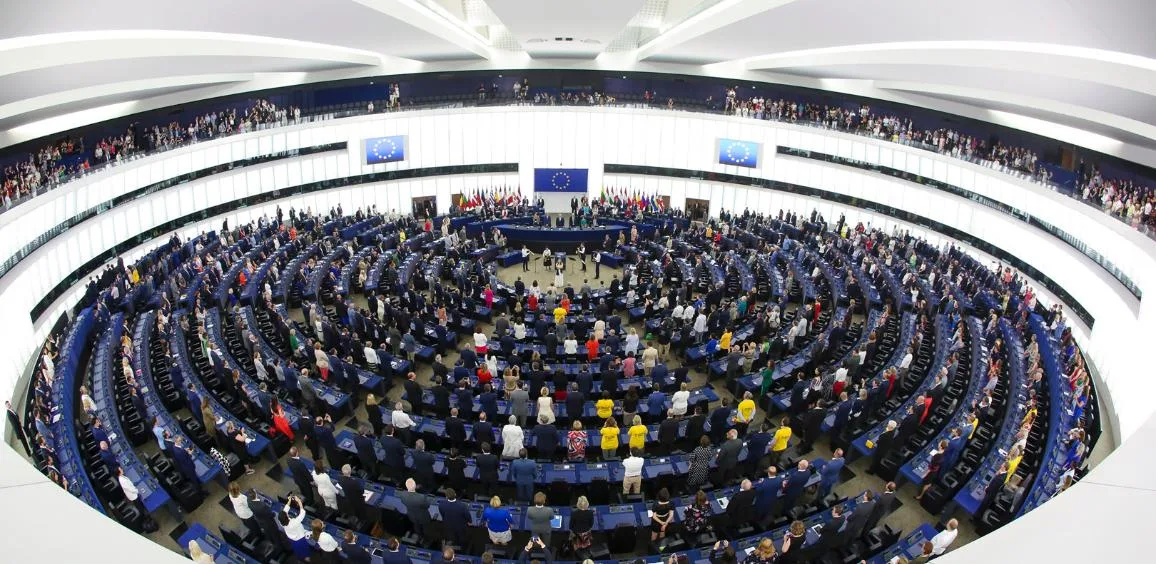Brussels – It will be “a new record” for the EU Parliament, a marathon to close as many legislative dossiers as possible before the return to the polls in June and the start of a new legislature. More precisely, 89 texts to be voted on, as “not even in the final session of the previous legislature,” EU Parliament spokesmen stressed during today’s (April 19) press briefing to recap a busy week that will open Monday afternoon (April 22) in the Strasbourg hemicycle. Many final votes on agreements reached with EU Council co-legislators—from the Packaging Regulation to the so-called business due diligence, from the Regulation on Ecodesign of Products to the extension of Autonomous Trade Measures (Atm) for Ukraine—but also some files on which work will have to continue in the next legislature and beyond.
It will begin Monday afternoon with the plenary debate on the common rules promoting the repair of goods, a dossier better known as the “right to repair”, on which the inter-institutional agreement was reached in early February to promote the repair of products instead of their replacement. The vote is scheduled for the following day (April 23), when another particularly relevant moment in the long marathon in the EU Parliament will take place: the final vote on the Ecodesign Regulation (signed by Alessandra Moretti, PD), which will ban the destruction of unsold clothes, minimum requirements for the eco-design of products on the European market, and the digital passport for the information of the same products. At the end of what is expected to be an intense debate with the commission and council on the outcome of the extraordinary EU leaders’ summit with a focus on the new European Competitiveness Pact, the debate will follow—with a subsequent vote in the afternoon—on the economic governance review, i.e., the reform of the Stability Pact on which the agreement between Parliament and Council was found on February 10.
Plenary votes on the interim agreements of the trialogues will continue Tuesday with the EU Act on gigabit infrastructure (the legislation by which it will be possible to accelerate the deployment of 5G networks) and the expected final go-ahead to the troubled process of extension to the stop of tariffs on food imports from Ukraine until June 5, 2025, following the double negotiation and the extension of the reference period to trigger the ’emergency brakes’ from July 1, 2021 to December 31, 2023. Of note among the debates that will take place until late in the evening is the one on the first EU directive to combat violence against women, which will then be voted on the following day (April 24). It will be a particularly busy day on Wednesday, which will see two voting sessions in the parliament’s hemicycle for the huge number of legislative files, starting with the strongly contested (in Italy) Packaging Regulation, which sets the binding targets to combat the increase in packaging waste and promote reuse and recycling after its first use. Also worth mentioning is the vote on the revision of the Air Quality Directive (another sensitive issue in Italy) that establishes stricter limits for fine particles and particulates, nitrogen dioxide (NO2) and sulfur dioxide (SO2), and the vote on the agreed withdrawal of the Union from the Energy Charter Treaty.
That’s not all. Also on the plenary’s menu at lunchtime on Wednesday is the MEPs’ green light to the March 15 agreement with the Council on the European Health Data Space, to that on the Due Diligence (the European standards on corporate sustainability already watered down by the 27 EU ambassadors) and on the directive on the work of digital platforms (authored by Elisabetta Gualmini, PD) passed with not a few chills from the twenty-seven countries’ consideration a month ago. And it doesn’t end there, as the EU Parliament will have to rule—this time on its own negotiating position—on the European Disability Card, the March understanding on the Cyber Solidarity Act to strengthen the response to attacks on member states’ critical infrastructure, and on the package of EU anti-money laundering rules. The day will then close with a stance on the Rule of Law in Hungary and the EU budget implications, including the question of the suspension of EU membership rights under Article 7 of the Treaty on European Union (TEU).
Dulcis in fundo, on the last day of the plenary session of the EU Parliament for this legislature, three major issues (with two debates and one vote under urgent procedure) will find space on Thursday (April 25). The first is the vote on the simplification of the Common Agricultural Policy (CAP) presented by the European Commission on March 15 and already approved by the 27 governments, after months of harsh protests by European farmers also in Brussels: several exemptions from the “Good Agricultural and Environmental Conditions” (BCAA) and the exemption of farms under 10 hectares from cross-compliance checks and sanctions are planned, as well as the first considerations on strengthening the position of farmers in the value chain. The second topic is the Regulation to develop an industry with zero-emission technologies—the Net-Zero Industry Act—the last pillar of the Green Deal Industrial Plan agreed upon in February by the EU Council and Parliament negotiators. Finally, the debate and vote on the establishment of the Ethics Body, which is supposed to apply the same standards to all European institutions but whose negotiations have stalled already due to the exit of the European Council and the Council of the European Union. The EU Parliament is called for a clear vote—on this and the other 88 files on the agenda—to show it is ready for a new legislature after the June 6-9 vote in the 27 member countries.
English version by the Translation Service of Withub




